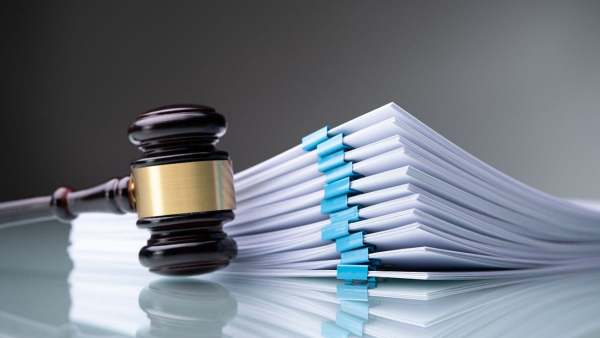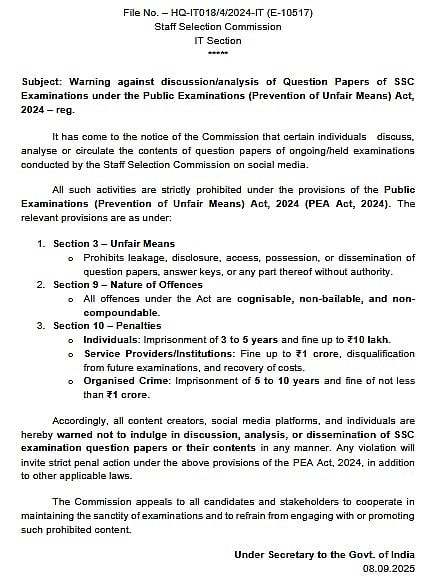
The Delhi High Court has raised concerns over SSC’s directive barring candidates from discussing or sharing exam papers on social media, terming it a potential “gag order.” The court has issued notices to the Centre and SSC, with the next hearing scheduled for December 17, 2025.
The Delhi High Court has expressed serious concern over a recent Staff Selection Commission (SSC) directive that prohibits candidates from discussing, analysing, or sharing question papers of conducted exams on social media, terming such restrictions as potential “gag orders.”
HC Bench Critiques SSC Directive
A bench comprising Chief Justice DK Upadhyay and Justice Tushar Rao Gedela raised the issue while hearing a petition filed by Vikas Kumar Mishra, challenging SSC’s September 8 notification. The court observed, “After coming out of the exam hall, the first thing that we used to do was… what is this? How is this being prohibited in the notification? You can’t put such gag orders...you can’t discuss the paper?,” as reported by Law Trend.
The bench issued notices to the Centre and SSC, directing them to submit their responses before the next hearing scheduled for December 17, 2025.
Petition Challenges SSC’s Action
According to a Hindustan Times report, the plea argues that the SSC directive is “illegal, arbitrary, and perverse”, claiming it violates candidates’ and the public’s right to freedom of speech under Article 19(1)(a) of the Constitution. The petition further states that the notification imposes “unreasonable restrictions” on post-exam discussions and should be quashed.
SSC’s Stand: Protecting Exam Integrity
In the previous month, SSC cautioned against sharing or posting question papers on social media under the Public Examinations (Prevention of Unfair Means) Act, 2024 (PEA Act, 2024). The commission mentioned cases where candidates and content creators shared examination material, which it asserts falls under "unfair means."

SSC Notification | Official Notification
Key provisions under the PEA Act have been highlighted as:
Section 3: Prohibits leakage, access, possession, or sharing of exam papers without authority.
Section 9: Makes all offences cognisable, non-bailable, and non-compoundable.
Section 10: Prescribes strict punishments —
Individuals: 3–5 years imprisonment + ₹10 lakh fine
Institutions/Service Providers: Fine up to ₹1 crore + disqualification from exams
Organised crime: 5–10 years imprisonment + fine ≥ ₹1 crore
The SSC stressed that any transgression will attract immediate legal action and urged candidates, content creators, and social media platforms not to post or analyze question papers.
Student Reaction and Controversy
The SSC directive has drawn criticism from aspirants on social media, with many arguing that the restriction limits discussion of exam strategies, peer learning, and transparency. Some candidates expressed concerns that this may affect their ability to learn from shared experiences after exams.
-
Amit Shah to launch Rs 1,816 crore projects in Delhi today to rejuvenate Yamuna

-
This European country is as cheap as India, and a paradise for budget travellers

-
Next shoppers rush to buy 'comfortable and stylish' trousers under £40

-
Next shoppers rush to buy 'comfortable and stylish' trousers under £40

-
PhonePe introduces UPI AutoPay for JioHotstar subscriptions: How it works
